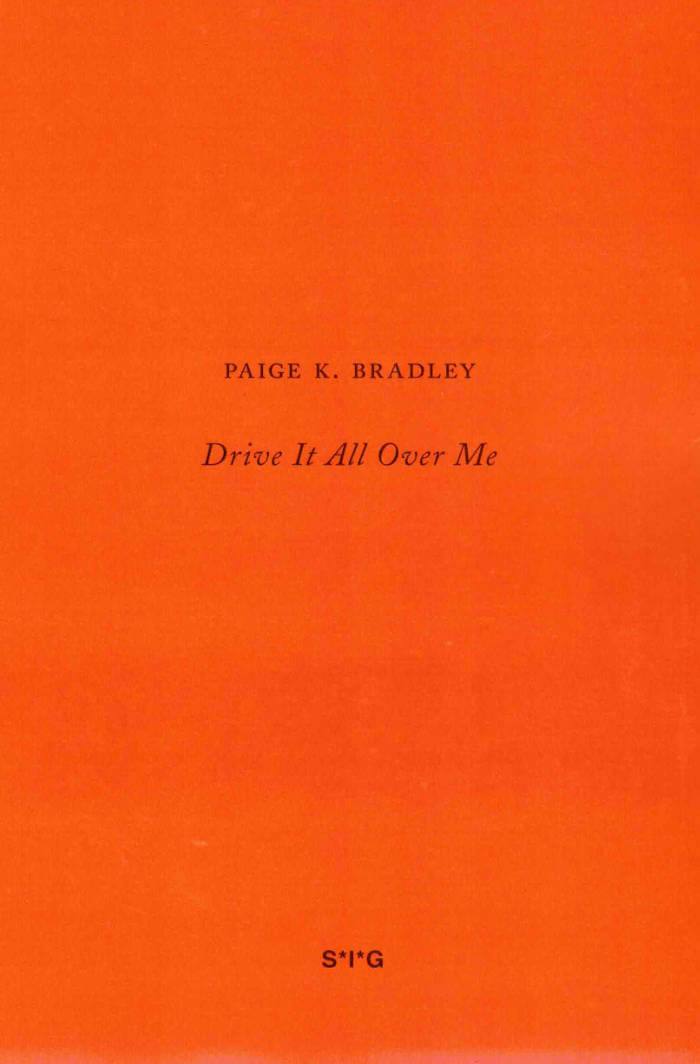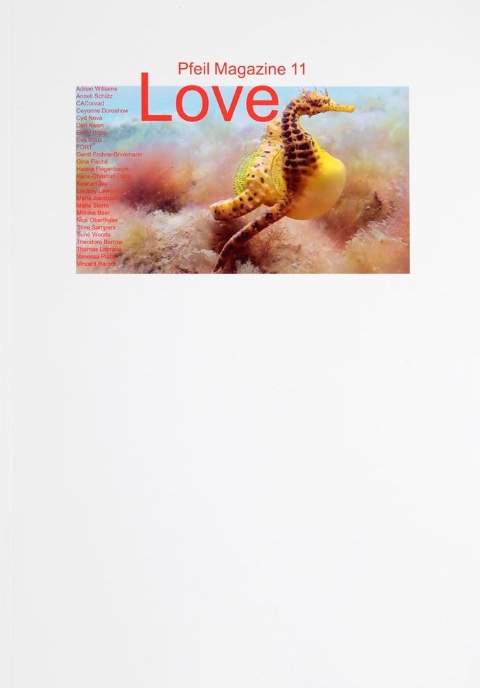Vanessa Place
Vanessa Place
.jpg)
Notes on Conceptualisms
Vanessa Place, Robert Fitterman
What is conceptual writing, how does it differ from Conceptual Art, what are some of the dominant forms of conceptualism,where does an impure or hybrid conceptualism fit in, what about the baroque, what about the prosody of procedure, what are the links between appropriation and conceptual writing, how does conceptual writing rely on a new way of reading, a “thinkership” that can shift the focus away from the text and onto the concept, what is the relationship between conceptual writing and technology or information culture, and why has this tendency taken hold in the poetry community now? What follows, then, is a collection of notes, aphorisms, quotes and inquiries on conceptual writing. We have co-authored this text through correspondence, shared reading interests, and similar explorations. Notes on Conceptualisms is far from a definitive text, and much closer to a primer, a purposefully incomplete starting place, where readers, hopefully, can enter so as to participate.

Dies: A Sentence
Dies: A Sentence by Vanessa Place is a 117-page, one-sentence novel about the coils of language and war, unspooled in the dying breath of a pre- and post-scient World War I soldier.
John Witte of the Northwest Review calls Dies, "a marvel of sustained synergy," author Jim Krusoe describes the book as "dizzyingly complex, compound, and full of miraculous side trips as well," and novelist Doug Nufer heralds DIES as a "delightful tour de force of a hopelessly grim predicament." Place obliterates the line between victim and perpetrator, subject and object, rendering this human truth: in the death sentence of life, there is still beauty. "Roll over, dear Whitman," says Susan McCabe in her Introduction, "Here's our new original."
“In a single sentence as bloody and crazed as the history of the 20th century, Place offers up “the untamed cadence of ten thousand feet.” Caught somewhere between Beckett’s The Unnamable, Kathy Acker’s Don Quixote, James Joyce’s Finnegans Wake and Ann Quin’s Passages, Dies is an extravagant and ferocious book, a real and uncompromising marvel.” — Brian Evenson
“The architectonics of Dies calls upon the aural touchstones, not only of Pound, but of Dante, Rabelais (beware of a scatological extravaganza), Eliot, Whitman, Stein, the Bible, Beckett, Joyce, Remarque, even ‘the ghost of mark twain‘—a babbling horde that makes this sentence both humbling and beyond paraphrase, both mythic and contemporary.” — Susan McCabe
Introduction by Susan McCabe.

I'll Drown My Book: Conceptual Writing by Women
Vanessa Place, Teresa Carmody and 2 more
Conceptual writing is emerging as a vital 21st century literary movement and I’ll Drown My Book represents the contributions of women in this defining moment. Edited by Caroline Bergvall, Laynie Browne, Teresa Carmody and Vanessa Place, I’ll Drown My Book takes its name from a poem by Bernadette Mayer, appropriating Shakespeare. The book includes work by 64 women from 10 countries, with contributors’ responses to the question—What is conceptual writing?—appearing alongside their work. I’ll Drown My Book offers feminist perspectives within this literary phenomenon.
CONTRIBUTORS:
Kathy Acker, Oana Avasilichioaei & Erin Moure, Dodie Bellamy, Lee Ann Brown, Angela Carr, Monica de la Torre, Danielle Dutton, Renee Gladman, Jen Hofer, Bernadette Mayer, Sharon Mesmer, Laura Mullen, Harryette Mullen, Deborah Richards, Juliana Spahr, Cecilia Vicuña, Wendy Walker, Jen Bervin, Inger Christiansen, Marcella Durand, Katie Degentesh, Nada Gordon, Jennifer Karmin, Mette Moestrup, Yedda Morrison, Anne Portugal, Joan Retallack, Cia Rinne, Giovanni Singleton, Anne Tardos, Hannah Weiner, Christine Wertheim, Norma Cole, Debra Di Blasi, Stacy Doris & Lisa Robertson, Sarah Dowling, Bhanu Kapil, Rachel Levitsky, Laura Moriarty, Redell Olsen, Chus Pato, Julie Patton, Kristin Prevallet, a.rawlings, Ryoko Seikiguchi, Susan M. Schultz, Rosmarie Waldrop, Renee Angle, Rachel Blau DuPlessis, Theresa Hak Kyung Cha, Tina Darragh, Judith Goldman, Susan Howe, Maryrose Larkin, Tracie Morris, Sawako Nakayasu, M. NourbeSe Philip, Jena Osman, kathryn l. pringle, Frances Richard, Kim Rosenfeld, and Rachel Zolf.
And more

Drive It All Over Me
Paige Bradley’s Drive It All Over Me was commissioned by the artists Jay Chung and Q Takeki Maeda and concerns their work Bad Driver, 2023, Jack Goldstein’s Selected Writings, and Vanessa Place’s Gone with the Wind and concerns broad themes of subtextual narrative, authorship, and identity in text-based visual artworks while also touching upon allegory, elaborately subtle jokes, and writing as a sculptural material.

What The Fire Sees
A collection of anti-capitalist poetry, philosophy, cultural analysis, legal studies, manifesto and critique spanning 1996 to the present by Alenka Zupančič, Alexander Kluge, Amy Ireland, Anne Boyer, Aurelia Guo, Bini Adamczak, Carolyn Lazard, Chi Chi Shi, Denis Ekpo, Feminist Judgments Project, Gili Tal, Houria Bouteldja, Huw Lemmey, Keziah Craven, Marina Vishmidt, Nat Raha, Sarah Lamble, Teflon and Vanessa Place.
Divided we fall, but where do we land? This collection explores some of the grounds on which thinking and writing can begin again.
– Sadie Plant

Unleashed
05/09/04 Now she is blogging. Now she is sitting on the black couch listening to the sirens wail and the rain fall. Now she is thinking of oysters. Now she is wondering why this is worth sharing. Now she is thinking, how decipher what is worth reading? Who is to say? Sifters. She thinks we have become a nation of sifters. So began a three-year experiment in blogging. An experiment begun for many reasons—a way for an expat to keep in touch with fellow Canadian writers and artists, a way to come to terms with the increasing relevance of the internet in literary lives, and a way to figure out why, after decades of gains, women writers are still grossly underrepresented in critical dialogues.
With an afterword by Vanessa Place.

Pfeil Magazine #11 – Love
The eleventh issue of Pfeil Magazine looks into the multitude of meanings behind the word love: a positive affection and strong physical feeling which can be addressed to a friend, family, food, God, an object, or to an amorous partner or partners. Furthermore, it questions the expectations which go along with love, whether that love is returned or unanswered. Relationship patterns and role distributions are surveyed, vulnerabilities are assessed, but besides that the Love issue is also about a pregnant male seahorse, an infatuation with a smiling rock, sports and much more.
Contributors: Adrian Williams, Anneli Schütz, CAConrad, Ceyenne Doroshow, Cyd Nova, Dan Kwon, Emily Pope, Eva Illouz, FORT, Gerrit Frohne-Brinkmann, Gina Fischli, Hanna Fiegenbaum, Hans-Christian Dany, Keenan Jay, Maria Jakobsen, Mette Sterre, Monika Baer, Nick Oberthaler, Lindsay Lawson, Stine Sampers, Suné Woods, Theodore Barrow, Thomas Laprade, Vanessa Place and Vincent Ramos.

On Violence
Violence is in language and violence is language. The violence of language stratifies voices into those that matter and those that do not, using ideas of appropriate form and structure as its weaponry. It claims propriety and politeness are the correct mode of address, when urgency and anger are what is needed. Where languages intersect, hierarchies of language become means for domination and colonization, for othering, suppression, negation, and obliteration. The demand for a correctness of grammar, the refusal to see what is seen as incorrect, the dismissal of vernacular in favour of the homogenised tongue: all are violent. The narrative of history is a narrative of violence. The contributions herein refuse this narrative. They explore how violence permeates and performs in language, how language may be seized, taken back to be used against the overwhelming force of structural and institutional violence that passes as acceptable or normal. Violence may be a force for rupture, for refusal, for dissent, for the herstories that refuse to cohere into a dominant narrative.
Contributors: Travis Alabanza, Katherine Angel, Skye Arundhati-Thomas, Mieke Bal, Janani Balasubramanian, Elena Bajo, Jordan Baseman, Emma Bolland, Pavel Büchler, Paul Buck,Kirsten Cooke, Jih-Fie Cheng, John Cunningham, Andy Fisher, Caspar Heinemann, Jakob Kolding, Candice Lin, Rudy Loewe, Nick Mwaluko, Vanessa Place, Katharina Poos, Tai Shani, Linda Stupart, Benjamin Swaim, Jonathan Trayner, Jala Wahid, Isobel Wohl, Sarah Wood